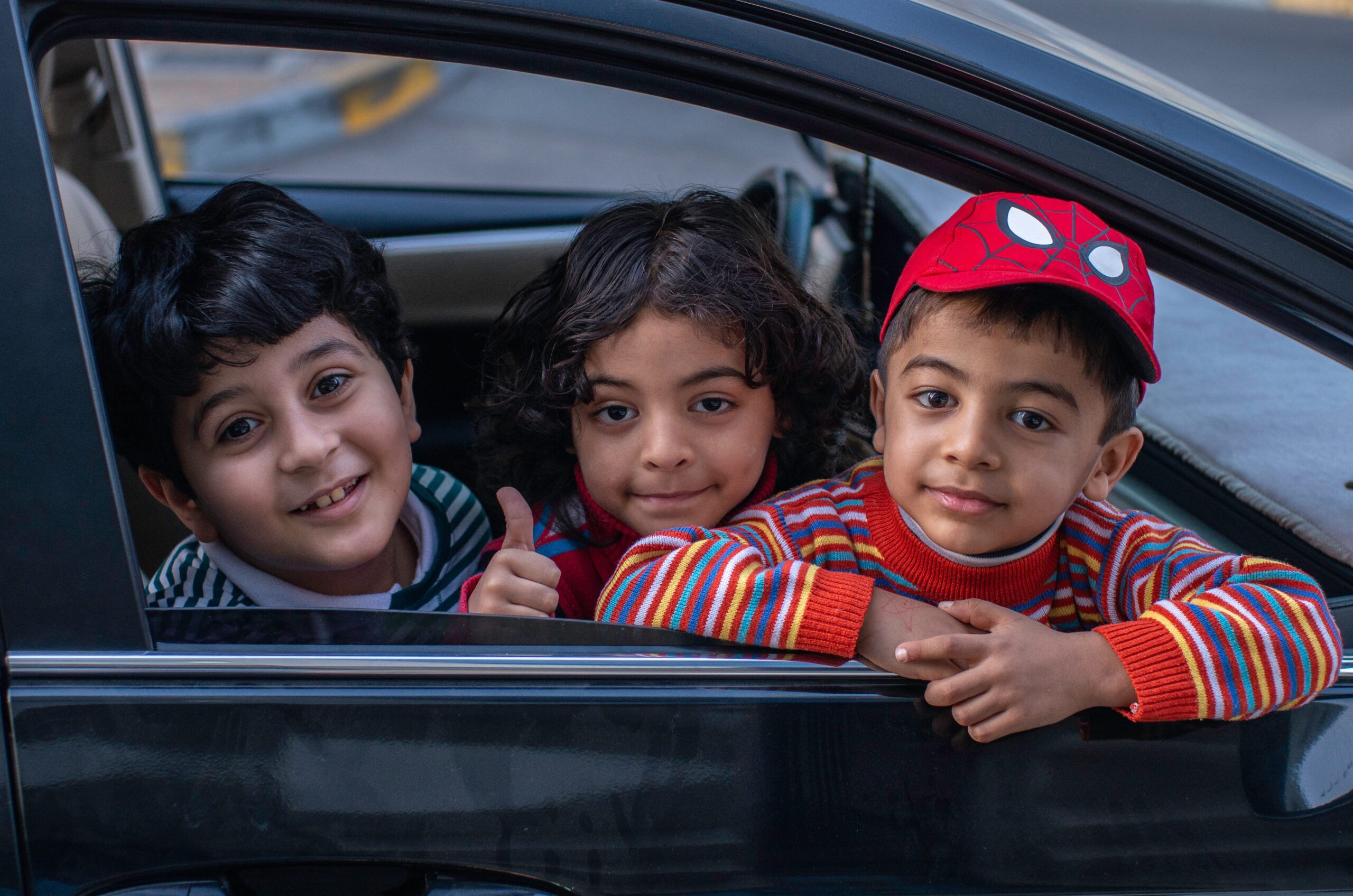How come children who grew up together sometimes describe such strikingly different experiences of their childhoods? Why can they have sharply colliding views of what their parents were like as people, and as parents? Why can one person’s memories sound like inventions to his or her siblings?
These differences in perspective can cause lasting tensions between siblings after the’ve entered adulthood. Some people come to feel that their siblings are twisting the family history. And sometimes this may be true, due to their siblings’ emotional wounds and their fear of confronting what actually took place.
But in other cases no one’s distorting anything; it’s simply that each child truly did grow up in a dramatically different emotional landscape. But how is that possible?
I’m part of a discussion group that recently decided to take these questions up. Here are some of the thoughts we came up with:
* Parents can be in completely changed emotional places when different kids are born, sometimes as different as night and day, because for example:
They’re suddenly not getting along anymore and are on the brink of divorce
The elderly mother or father of one of the parents gets very sick or gets widowed, and the parent is suddenly consumed for months or years with the care of that elderly person
One of the parents has an affair, or a long-standing affair finally gets exposed, sending a shockwave through the home (which the kids usually don’t know the cause of)
One or both parents loses a job, catapulting the family into much harder economic circumstances
One of the parents develops a serious physical or mental health problem, such as cancer, depression, severe back problems, or chronic fatigue
These are not rare events. I would hazard the guess that most families in our times deal with at least one of the above items while the kids are growing up; and what age you were when it happened, and how long it went on, will have a big effect on how your remember your childhood.
* Parents treat boys and girls very differently (and this can include severe unfairness to the girls which the boys are typically clueless about, or even agree with and join in with).

* Planned pregnancies are very different for parents from unplanned ones; the latter can come with disappointment (about being tied down for several more years), stress, blaming each other, resenting the child, and so forth.
* Parents may simply like some of their kids more than others, or have more in common with them, or both. This is a serious problem when it leads to favoritism in how kids are treated and what resources and opportunities they get (e.g. “We don’t want to pay for piano lessons for you, it’s different for your sister because she’s really talented.” – ugh!) And certain kids really push their parents’ buttons, mostly not on purpose; for example, some kids remind a parent of a relative he or she couldn’t stand.
* Kids look for different niches to occupy in order to get their needs met for love, praise, or attention (e.g. the well-behaved child, the troublemaking child, one parent’s favorite, the other parent’s favorite, the smart one, the athletic one, etc.). These roles in turn lead the adult world to define and respond to those kids very differently, both inside and outside of the family.
* The child who speaks the unspeakable aloud (e.g. Dad is abusive, or Grandma is alcoholic, or the rest of you are being mean to me — whatever the terrible reality it is that family members are expected never to mention) gets defined as the cause of the family problem. “You’re the reason why we can’t get along,” etc.
* Certain kids — most commonly older ones — are given secrets by the parents that they have to keep, and that secrecy separates them from their siblings and makes them feel terribly burdened (about one of the parents having had an affair, for example, a secret they are sometimes also forced to keep from the other parent)

* Older kids are often charged with looking after younger ones. This role can stick them with responsibility that they don’t want and are resentful about, and they may take that out on their siblings. The caretaking role also gives them a kind of power over the younger kids that the younger kids don’t want them to have, leading to resentments in the opposite direction.
* Parents compare kids aloud (e.g. “Why can’t you be a good student like your sister” etc.). These comparisons set kids against each other and make them feel terrible even if they’re the one compared favorably.
* Families move. So, for example, the place where one child mostly grew up may be where an older sibling only spent his or her high school years. These environments can be sharply contrasting, including having much better or worse schools.
* Some kids have way more access to playmates than other kids do, depending for example on whether there happen to be other kids of compatible ages in the neighborhood. Access to playmates is a top factor in the quality of our childhoods, and in our ability to cope with the bad stuff that happens in our families.
* Parents are often different in their parenting style with their later children. By child two or three or four they may be too tired out to be as strict as they used to be (which can be good news), they may have learned something from their mistakes (good news again), they may be too tired out to be as available to their kids as they used to be (not good news), or they may be hoping the younger children can fulfill some emotional of the parents (such as to be a big success) that the older children are seen as failing to meet (bad news again).

* There may be different people living in the house at different times (grandparents or other relatives, for example) which changes the family dynamics. And when older siblings move out, that’s a big deal.
* Growing up with older siblings right from the start is really different from not having any siblings present until later. Similarly, the experience of having younger siblings is something that not all kids in the family have.
The discussion group that did this brainstorm was not involved with the subject of intimate partner abuse, so we didn’t talk about how all of the above dynamics interact with abuse. I did write some posts many months ago about the contrast between kids who see through the abuser and the ones who don’t, and that distinction is of course the source of big tensions. But I’d be happy to write in more detail about additional reasons why, in a family where Dad abuses Mom, children tend to get so turned against each other, and why they can have completely irreconcilable descriptions of what took place once they grow up.
A couple of final thoughts that came out of our group discussion: First, the other tensions we have with our siblings – about our different styles and preferences – are often interwoven with these contrasting views we have of our childhoods. For example, a person who is severely controlling towards their siblings as an adult is typicaly the same sibling who is also in complete denial about the family’s unhealthy dynamics from childhood.
Secondly, we often channel resentments toward our siblings that really should be directed toward our parents, or toward the adult world in general. As kids we internalize the oppression we’re subjected to, which tragically causes us to take it all out on each other.
Note: I’m going to be writing posts every so often from now on that address emotional healing issues in general, not always specific to intimate partner abuse. This was my first post of this kind.
Photo by Zakaria Mohie on Unsplash Chidren in car
Photo by NONRESIDENT on Unsplash Brothers probably?
Photo by Annie Spratt on Unsplash Helping a sibling up
Photo by kabita Darlami on Unsplash Baby in the air
Lundy’s new book In Custody: A Carrie Green Novel is available in paperback and Kindle editions.





